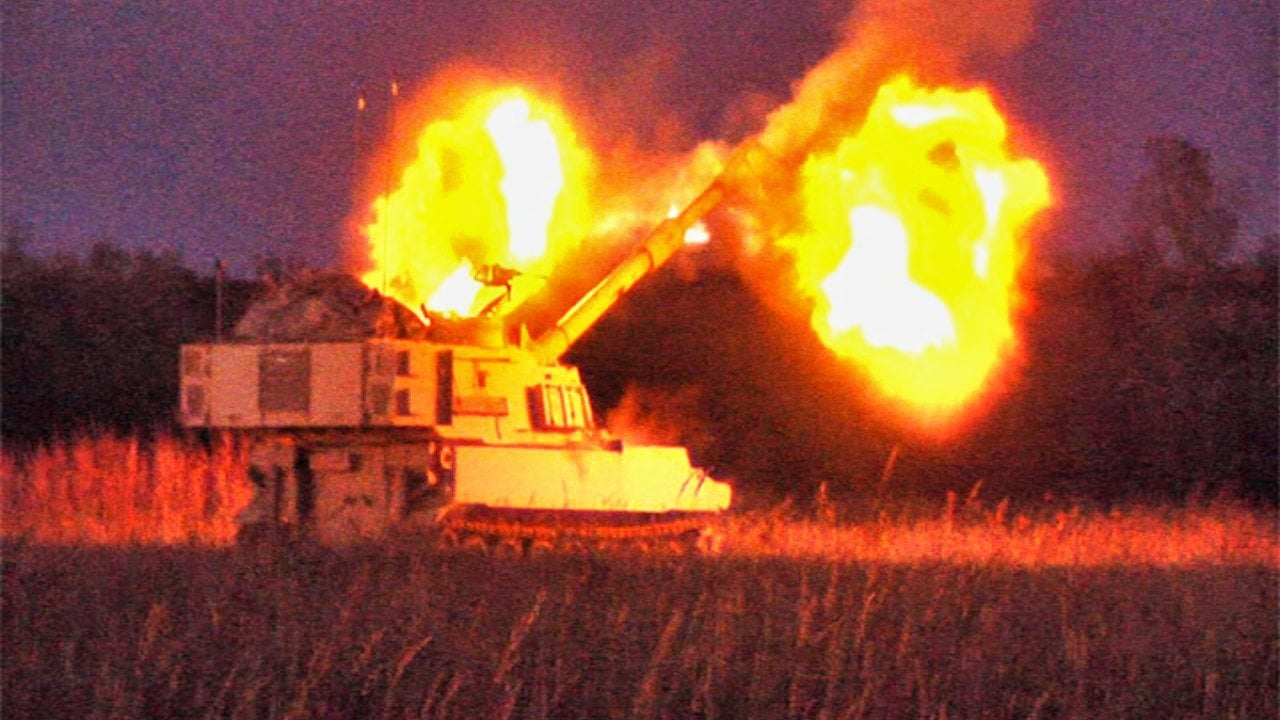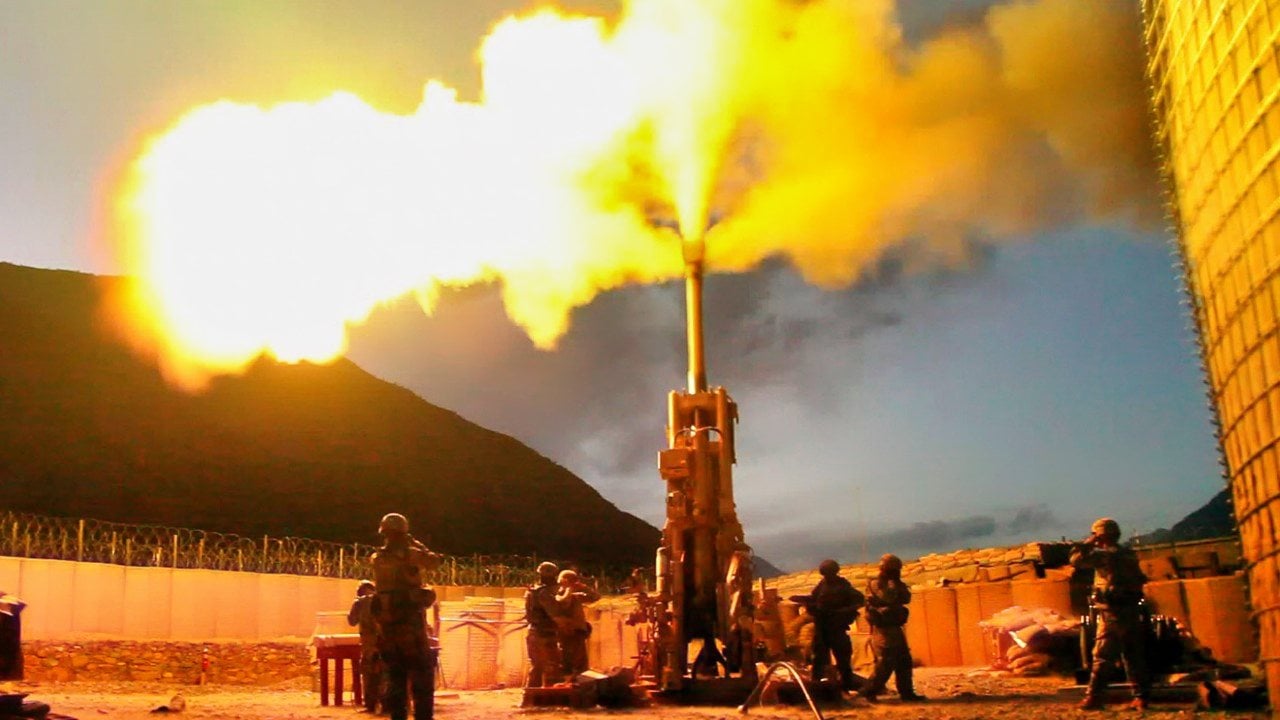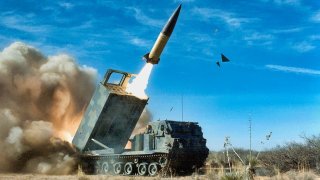Why the Kursk Offensive Matters So Much
The Biden administration needs to realize that a Ukrainian victory advances U.S. interests, but if Russia is allowed to take Ukrainian territory, then U.S. adversaries across the globe, including in Asia, will be emboldened. The cost of fully supporting Ukraine now is much less than the cost of defending NATO allies with U.S. troops later.
Ukraine needed to seize the initiative and flip the script. The prevailing narrative was one of a hopeless war of attrition whereby the larger Russian side was slowly grinding down the defenders and inching forward. Pressure was building for Ukraine to trade land for peace, which would reward the aggressor and encourage future aggression.

Ukraine has been handicapped by the imaginary Russian redlines drawn by the Biden administration. First with providing High Mobility Rocket Systems (HIMARS), then tanks and F-16s, and now long-range Army Tactical Missile Systems (ATACMS). After much hysterical bluster and when the U.S. reluctantly relented, the Kremlin shrugged it off as the new normal.
Russia’s doctrine of resorting to nuclear weapons in the case of an existential threat was not triggered by Ukrainian troops taking over a sizeable chunk of the Kursk region. It is shocking to Western observers that the Russian leadership is so indifferent to the fate of its territory and people. Putin brandished the nuclear threat already at the start of the war but has been subdued since the Kursk incursion began. Russia seems more intent on conquering Ukrainian land than on protecting its own.
Kursk: An Important 'Incusrion'
Thus, one of the most important goals of the Kursk offensive is to prod the U.S. administration to abandon its self-deterring escalation management that has prolonged the war and allowed Russia to destroy Ukrainian lives and infrastructure with impunity. Many European countries have placed no restrictions on the use of the weapons they have supplied, except respecting the laws of war, which permit hitting military targets anywhere on the aggressor’s soil. It is elementary logic, and certainly more cost-effective, to shoot the archer rather than the arrows.
According to President Zelenskyy, the Kursk operation was a move to create a buffer zone. Fighting on the enemy’s soil is preferable to destruction of your own. The incursion has not succeeded in luring Russian troops away from the Donetsk front where they are still applying massive pressure, but it has shown that Russia is unprepared to protect its territory. Simultaneously, Ukraine is conducting audacious long-range drone strikes against airbases, oil refineries, and logistics hubs in Russia, which also makes the war visible to ordinary Russians.
The big question is when these stunning setbacks will start reverberating among Russians. Historically, Russian regimes that appeared stable have collapsed unexpectedly as the result of military defeat: the Crimean War led to the emancipation of the serfs, the Russo-Japanese War sparked the 1905 Revolution, the First World War toppled the Tsar, and overextension in Afghanistan began the unraveling of the Union of Soviet Socialist Republics (USSR).
After the failure of his initial plan to quickly seize Kyiv, Putin reverted to outlasting the West, certain that domestic polarization, economic woes, and conflict in the Middle East, would weaken the West’s resolve. Here he has been more successful than on the battlefield. Putin is waiting for the U.S. presidential election, and even if Trump loses, increased mistrust and internal tensions benefit Moscow. Furthermore, Putin has friends among European Union (EU) and NATO leaders: Hungary’s Viktor Orban and Slovakia’s Robert Fico; and he uses the far-right and far-left to undermine governments in countries such as France and Germany.
Ukraine’s ability to succeed depends on convincing the U.S. administration to change its overly cautious approach and to lift restrictions. All arguments have thus far failed to move Jake Sullivan and Joe Biden, and thus Ukraine’s daring counter-invasion is a desperate gamble to demonstrate the merits of their case with facts on the ground.

The Biden administration needs to realize that a Ukrainian victory advances U.S. interests, but if Russia is allowed to take Ukrainian territory, then U.S. adversaries across the globe, including in Asia, will be emboldened. The cost of fully supporting Ukraine now is much less than the cost of defending NATO allies with U.S. troops later.
About the Author:
Andres Kasekamp is a Professor of History at the Munk School of Global Affairs and Public Policy at the University of Toronto. He was previously the Director of the Estonian Foreign Policy Institute.
Image Credit: Creative Commons and/or Shutterstock.


